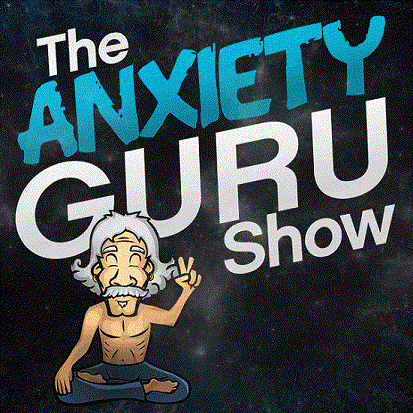
My earliest memory of abnormal anxiety centers on my first panic attack. I remember everything about that night, including how confused I was afterward. I imagine that you must have felt something similar when this all started for you as well, right?
You ended up confused, mentally paralyzed, and worst of all, stuck in a useless, unproductive cycle of worry and reassurance seeking. This, of course, is a problem if you ever intend to get better. You need direction; a firm expectation of full recovery.
Not everyone would agree with me though. Some think that having high expectations is a recipe for anger, disappointment and even failure.
The idea being that if you hope for a particular outcome, and are unable to attain it, you end up with little more than frustration. I guess not having expectations sounds good, even ideal, in that case, but who goes through life without expectations? It’s in our nature to imagine the future; bottom-line, you can’t abandon your expectations, but you do need to develop the right expectations.
You have to expect things of yourself before you can do them.” Michael Jordan
When most of us start our journey towards recovery, we focus our attention on the end goal – full recovery, right? But what about the space between anxiety and recovery? You know, the hard part. This phase can’t be ignored.
And this raises two big questions: Do you have the right expectations? Do these expectations drive your behavior? Let me explain. Let’s say that you expect to recover from anxiety 100% but don’t take targeted action that would make recovery a reality; what then?
I’ll tell you what, nothing. Total and utter failure awaits your desperate hopefulness. It’s ugly. In my experience most people hope for recovery, but don’t expect it. And, in turn, don’t do much to make it happen. But what if you tweaked your expectations? What if you aimed to lower a single symptom rather than scoring a Hail Mary? Therein lies the key to the whole thing. Stop looking for the glorious end to your anxiety.
Train your sights on short-term, realistic goals and you will not only stave off disappointment, you will double your chances of recovery. Anxiety has fooled you into believing exaggerated notions of what your symptoms might do to you. It has also caused you to exaggerate what you can achieve without effort, without planning, and without consistency.
In this week’s episode of The Anxiety Guru Show, I explore how you can develop the right expectations for your recovery and how this can help you shape a future without abnormal anxiety.
Listen to The Anxiety Guru Show…
To listen, you can click the listen button below or visit my iTunes page.





Nice post.
I certainly am one of the people who hopes for an exact 100.00% recovery to the exact 100.00% personality I had before anxiety. I want to recover so much that I don’t even want to remember the first panic attack I had after ecstasy!
Hey Rob, it’s not just you. I think a lot of anxious people are perfectionists to varying degrees and this sometimes takes away from the small, but important, progress that is made. That perspective can be changed though, so that small change is embraced and built upon!
Great post…wish I had known about this sooner…
And the thing is, it sounds so obvious. By the time you are suffering panic attacks on a regular basis, it’s obvious that there is a bit of work to be done, so why not manage it in bite-size chunks (which is what most people do anyway when it comes to tackling a big projects).
I think some of us have fallen for the old, ‘get rich quick’ mentality, when it comes to recovering from a psychological issue. Yes, there is NLP, PS-TEC, EFT, and more, which allows you to recover quicker than ever before (in some cases), but you still have to, ‘chunk it down’ into smaller steps, which makes it easier to manage and ultimately overcome.
Thanks for a very inspirational post;-)
Hey Julian, I liked how you put it: “get rich quick mentality.” That’s exactly right. It would be nice to make positive change fast… but usually it comes in stages.
Great post, Paul! As a former sufferer with Generalized Anxiety Disorder, I remember that “I just want it to GO AWAY!” mindset, which I now realize was just feeding my feelings of defeat and desperation. When I started to focus on my small victories (and to realize that I actually HAD some small victories), everything started to turn around.
Thanks for this great reminder.
For me personally, I had panic attacks for almost ten years, and that entire time I had faith that I’d figure out a cure someday. I did tons of research, took classes, read books, tried medications, went to numerous therapists, kept a close watch on all the things that could be contributing to my stress levels. It wasn’t until I got to the point where I completely lost all hope of ever being free from panic attacks that I kind of just accidentally figured out how to make them stop. I haven’t had a single one since then. It feels even more amazing to be free of that nightmare than I could have possibly imagined.
I don’t know. Maybe that was just a culmination of all the effort I put into doing my research before, or maybe I was just making it too complicated. I think the answer to “How do I stop having panic attacks?” is as simple as figuring out how to stop allowing the adrenaline response to take place. That’s what I did, and then whenever I felt like I was going to have a panic attack, I could stop the physical response. Even when I felt my mind pushing to react (why it purposely goes to the most terrifying thoughts, I don’t know), without having a physical response, those thoughts were powerless. Panic attacks are a vicious cycle of your body’s response to your mental anxiety and vice-versa, so I’d speculate that preventing either one of those things from happening could stop them. I just find trying to calm my thoughts down is an impossible task, whereas stopping the physical response is relatively simple.
The bottom line is, I didn’t find a solution until I let go of the expectation that my panic attacks would ever go away. Strangely, then I found a way to stop them almost immediately.
Just discovered this website. I think I will be coming back often to check the archives and future posts. I think you bring up a great point. I must constantly remind myself that I need to focus on the day to day. Baby steps.
The moment I focus on the “Get rid of anxiety 100%”, if I have a bit of anxiety for the first time in a couple of days, it brings me dread, I’m failing because I’ve had an anxious moment, and I feel defeated and have to start over.
I feel like I need to learn to cope with anxiety correctly and set up correct goals. What those goals are is something I need to figure out.
Great show, Paul. We all have to manage our recovery , anxiety in general, like its a business. We are our own CEO’s.
I needed this today. I didn’t want to show up for my job.